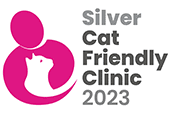Recently we heard there may have been possible cases of Parvovirus in the area so we thought it would be a good idea to write a blog about the subject so you are all aware of what it is and what you can do should your dog contract the virus.
Parvovirus is a common and potentially serious viral infection of the gastrointestinal tract that affects puppies and young dogs that have not been vaccinated or have not completed their vaccine course.
The virus can be transmitted by any person, animal or object that has come into contact with an infected dog’s faeces. It’s a highly resistant virus and can live in the environment for months and may survive on objects such as dog bowls, shoes, clothes and on the coats and pads of other dogs.
The symptoms of Parvovirus include lethargy, refusal of food and water, vomiting and bloody, foul smelling diarrhoea. This can result in swift and severe dehydration and may lead to your dog dying. There is a less common form of Parvo (cardiac) which occurs in very young pups (usually less than 8 weeks old) but it is far more dangerous. The infection attacks the heart muscles as well as the blood vessels and can lead to haemorrhaging and a heart attack. The most common symptoms for this type of Parvovirus is crying, difficulty breathing and gasping for breath, weakness, depression, and an unwillingness to nurse.
Parvovirus can affect any dog that’s not fully vaccinated. However, there are certain breeds that are more susceptible than others. Breeds at higher risk include Rottweilers, Dobermans, Labradors and German Shepherds.
At the moment there isn’t a direct cure that can kill the virus. Treatment consists of supportive care by intravenous fluid therapy to treat the severe dehydration. In addition, dogs are treated with drugs to stop vomiting, prevent stomach ulcers and, with antibiotics to prevent secondary infection from bacteria.
One of the most important things you can do for your dog is to get it vaccinated to help prevent catching this terrible virus. If you would like more advice on Parvovirus or getting your dog vaccinated, please contact the clinic and we will be more than happy to talk to you.





